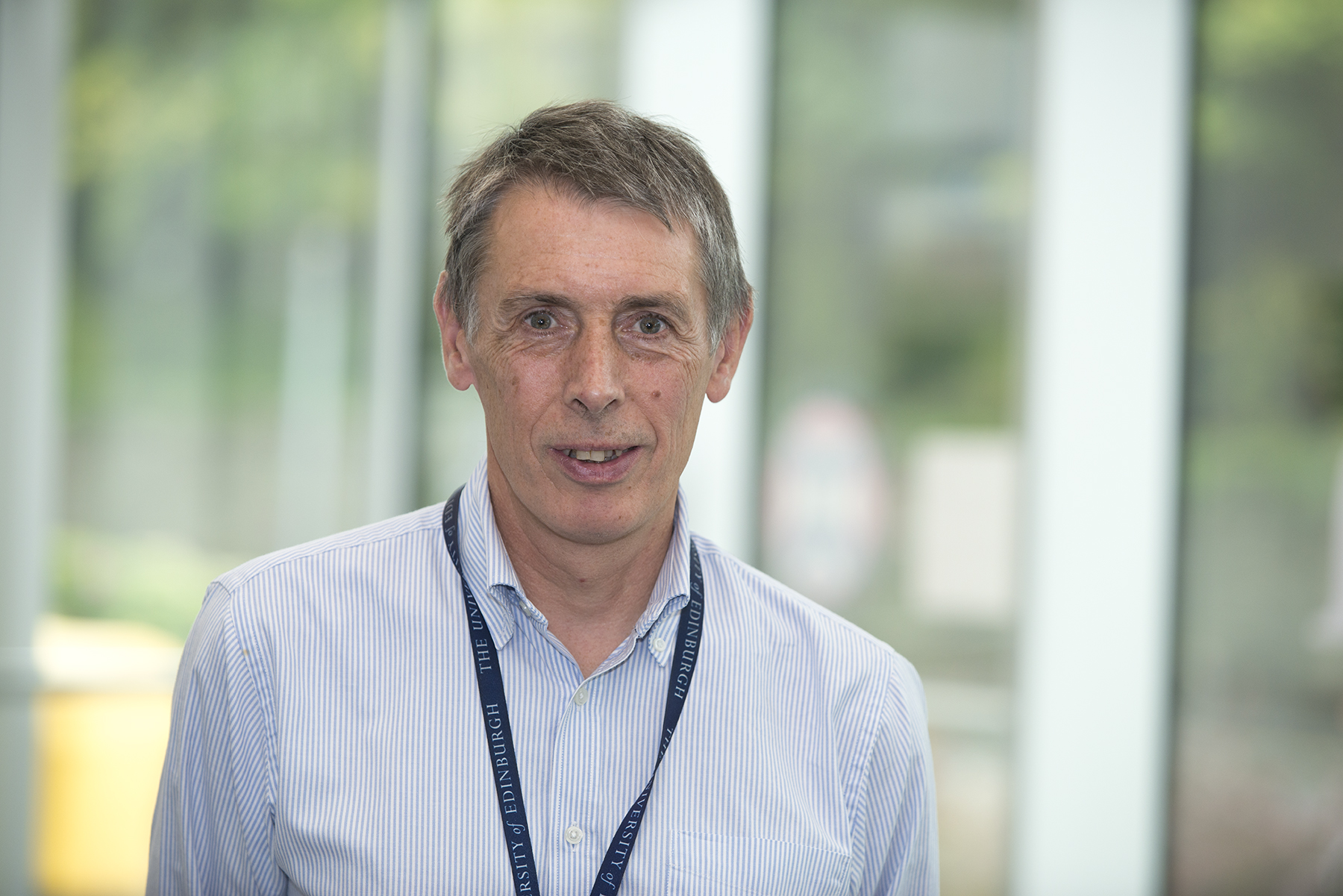Farewell to Stewart McKay

Stewart McKay is swapping his cycle commute from Balerno for the golf course at Harburn in West Calder and fly fishing at Threipmuir Reservoir after more than 40 years at the IGC.
Over the years, he has seen the Institute move through many phases of development and remembers staff playing volleyball on a field which is now the site of the North Building.
Stewart, who grew up in Broomhall, Corstorphine, began his career nearly 45 years ago as a Trainee Technician at Heriot Watt University. A year later, in May 1981, he became a Junior Technician in the Tissue Culture lab in what was then the MRC Mammalian Genome Unit and started a day release course at Napier. He was promoted to Technician three years later.
In 1988, when the MRC Mammalian Genome Unit closed, most staff transferred to the MRC Human Genetics Unit. Stewart moved to the role of Scientific Officer and then became Higher Scientific Officer, working with Adrian Bird, Buchanan Professor of Genetics, and Professor Howard Cooke, Former Head of the MRC Human Genetics Unit and Fellow of the Royal Society of Edinburgh, before being appointed to his current role of Technical Services Manager in 1996.
He developed and expanded the Sanger DNA Sequencing services, set up the Flow Cytometry facility and modernised the Liquid Nitrogen sample storage system and database.
Stewart was also involved in many large infrastructure projects over the years, which was a part of the job that he really particularly enjoyed.
A lasting legacy is the focus on sustainability at the IGC which he started to promote more than a decade ago with the development of a Sustainability Committee. He also set up the Gardening Committee with Maggie Arbuckle, and was part of a group that got funding from the Medical Research Council to plant a medicinal garden in front of the IGC.
“Sustainability wasn’t a big topic back then but we decided to get involved and drive it forward,” says Stewart, who is part of the University’s Sustainable Laboratories Steering Group. “There was no obligation to do it and initially only 30 per cent of the University did the sustainability awards. We were one of the first labs to get involved in it.”
One of his last acts before officially retiring at the end of November has been to lead on the reinvigoration of the committee in preparation for taking forward the new University Sustainability Framework and ensuring the IGC achieves a Laboratory Silver Award as part of a CMVM submission, which will be a minimum requirement for many grant awarding funders in the future.
Stewart, who has been transitioning towards retirement since he went part-time two years ago, is proud of the fact that most of his team, many of who he interviewed for their jobs, are still working for him.
“My job has been made easier by having a really good team behind me,” he says. “Now it’s time for new people and new ideas.”



